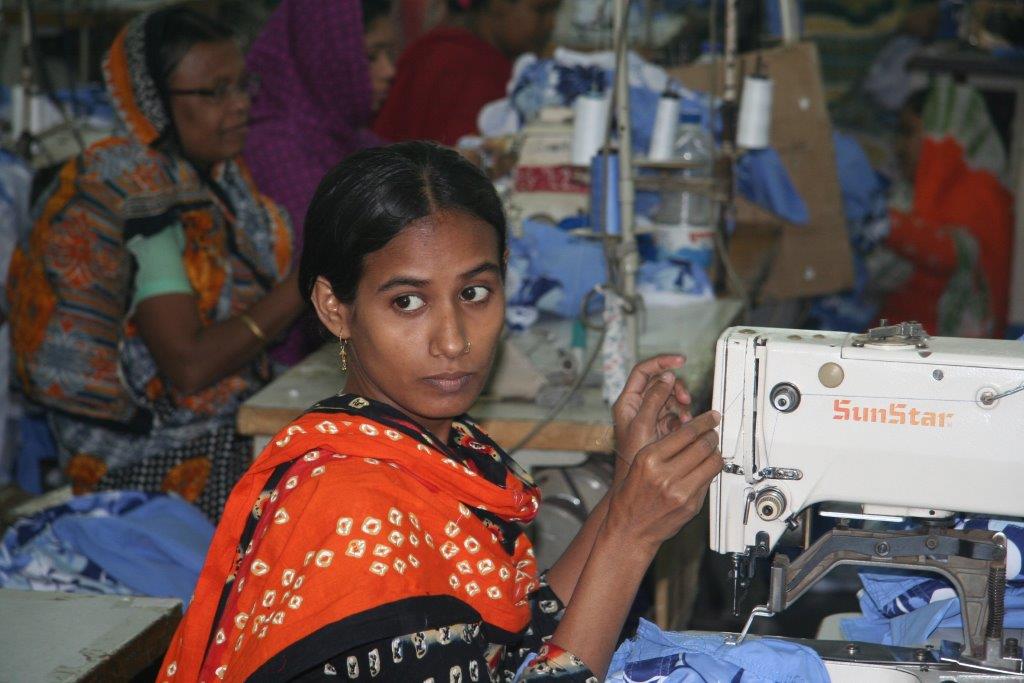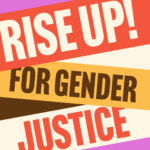
11 years after the Rana Plaza factory collapse, Canada’s unions honour victims and continue demands to improve conditions for workers
April 24, 2024, marks 11 years since the collapse of the Rana Plaza garment factory in Dhaka, Bangladesh. This terrible and avoidable tragedy killed more than 1,134 workers and injured more than 2,600, unveiling the horrific conditions of work for millions of workers in an unregulated industry, not only in Bangladesh but in dozens of other countries as well.
This tragedy spurred years of global initiatives and campaigns. Echoing the demands of survivors and families of the victims, those efforts sought to bring forward the international fashion brands’ responsibility for the horrendous conditions of work and poverty wages in their supply chains, to call on governments to ensure the application of global labour and health and safety standards and to demand that protections for human and labour rights, including the right to form unions and the right to collective bargaining, are enshrined and protected in trade and investment agreements.
Despite years of globally coordinated efforts to bring improvements to factory safety in the sector, with major success stemming from the collaboration between international brands, global unions and governments, there remain many areas where progress has been far too slow for workers and activists.
To truly improve the situation, worker rights must be addressed globally alongside the ongoing commitments to ensure factory safety, starting with ensuring workers’ ability to organize collectively. Yet, Bangladeshi workers and labour rights activists continue to be killed and criminalized for protesting poverty wages, for trying to join or form unions, and for calling for an end to discrimination against women workers.
One key tool to ensure progress lies in Bangladesh adhering to a 5-year Road Map (2021-2026) at the International Labour Organization to improve its application of key labour standards on Labour Inspection Convention, Freedom of Association and Protection of the Right to Organise Convention, and the Right to Organise and Collective Bargaining Convention.
Regular monitoring of the Road Map process indicates that workers in Bangladesh do not have full freedom in terms of joining trade unions. Organized workers have a very limited scope to negotiate collective agreements, workers and trade union organizers continue to be subjected to violence on a regular basis, women workers are victims of discrimination, and the amendment brought to the labour law of Bangladesh is minimal.
Canada’s unions have been working with Bangladesh labour organizations and unions since before the 2013 Rana Plaza disaster to promote better conditions of work in the garment sector. On this grim anniversary, we amplify our calls for:
- Canada to pass mandatory human rights due diligence legislation that requires companies to prevent the risk of harm to people and the environment throughout their supply chain and to put in place adequate procedures to minimize the risk, remedy any existing harm, and do everything in their power to prevent future harm. If a company fails to do any of these things, the law gives people negatively impacted by the company’s actions the power to seek justice in Canadian courts;
- Brands to sign the International Accord for Health and Safety in the Textile and Garment Industry, the successor to the successful Bangladesh Accord on Building and Fire Safety, to promote independent safety inspections and complaint mechanisms to ensure safer factories and prevent mass casualty incidents;
- Brands to immediately require their suppliers to withdraw all criminal complaints against workers stemming from the minimum wage protests of 2023, and reverse any other retaliatory action taken against workers;
- Bangladesh to cease the repression against Bangladeshi garment workers and recognize the fundamental rights to association and the right to organize;
- Bangladesh to investigate and ensure financial compensation consistent with international standards for all Rana Plaza victims and their families;
- Bangladesh to support the call of the families and communities of workers to build a memorial at the Rana Plaza site, to honour the lives lost and forever changed through this tragedy.
Click here to add your voice to the struggle by leaving a message commemorating victims of the Rana Plaza disaster on a virtual memorial, and by calling on major international brands to sign the International Accord for Health and Safety in the Textile and Garment Industry, ensure workplace safety and recognize the rights of workers to organize, refuse unsafe work, and raise health and safety concerns.




